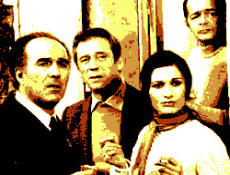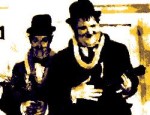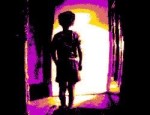Film Review
Claude Néron's novel
La
Grande marrade was the jumping off point for
Vincent, François, Paul et les
autres..., director Claude Sautet's bittersweet hymn to
friendship which rates as one of the director's most personal and
endearing films.
Although the leftwing French press were quick to
label the film 'bourgeois' it was an immense commercial and critical
success, attracting an audience in France of over 2.8 million on its
first release and winning the 1974 Prix Jean Cocteau. Not only is
this one of Sautet's most realistic films, pummelling its spectator
with the most authentic study of the worth and limitations of male
friendship, it was highly topical, as it references the economic
downturn that hit France in the mid-1970s in the wake of the first oil
crisis.
As was ever the case once he had got into his stride as a filmmaker,
Sautet brings together a remarkable ensemble that is headed by some of the
finest French actors of the day, as well as some very promising
newcomers. Yves Montand and Michel Piccoli were two of
Sautet's favourite actors and had already appeared in some of his best
films - Montand in
César et Rosalie (1972),
Piccoli in
Les Choses de la vie (1969) and
Max et les ferrailleurs
(1971).
Here, both actors, each at height of his powers, turns in
an impeccable performance that reveals a far more acute mid-life crisis
than the vague and sketchy script would suggest. Montand, the
more physically expressive actor, naturally steals the focus with his
devastating portrait of a man teetering on the brink as his world crumbles
beneath his feet, and we scarcely notice Piccoli falling apart in the background
until the powerful scene in which the two men finally confront each
other with their woes.
Serge Reggiani may have a much smaller role in the proceedings but he
is just as captivating in what was a career-saving role, allowing him
to make a belated comeback after several years in which his acting
played second fiddle to his career as a singer. Representing the
next generation is a young Gérard Depardieu, who had recently
had his big breakthrough in Bertrand Blier's
Les Valseuses (1974) and is
well-utilised by Sautet to demonstrate that friendship is not confined
to one age group but can cross the generational divide.
Whilst this is a male-dominated drama, it is impossible to overlook the
contributions from the female half of the cast, which includes a
magnificent chorus comprising Stéphane Audran, Marie Dubois,
Ludmila Mikaël and Catherine Allégret, all superb
representatives of the modern liberated woman.
A compelling realist drama, which captures the mood of its time with
astonishing ease,
Vincent,
François, Paul et les autres... cemented Claude Sautet's
reputation as one of France's leading auteur filmmakers. It
remains one of the finest examples in French cinema of a drama
revolving around male friendship, a subject which, for some reason, few
filmmakers in France are willing or able to tackle, at least not with
the seriousness and sensitivity it merits.
© James Travers 2013
The above content is owned by frenchfilms.org and must not be copied.
Next Claude Sautet film:
Mado (1976)
Film Synopsis
Every weekend without fail, three old friends - Vincent, François
and Paul - meet up to take their mind off their personal and professional
anxieties. Vincent is the owner of a small company that he created
himself and now lives with Marie after separating from his wife Catherine.
François is a private doctor and has made himself a wealthy man by
abandoning his ideals - maybe this is why his wife Lucie no longer loves
him. Paul is the least successful of the three. After failing
as a journalist, he now devotes himself to writing a book he knows he will
never finish, becoming increasingly withdrawn and alcoholic as he does so.
The three friends are joined by a younger man, Jean, an amateur boxer who
has come to regard Vincent, his boss, as a replacement father.
Now in their late forties, early fifties, Vincent and his friends have each
arrived at a moment of crisis in their lives. With his business about
to go down the pan, Vincent has no option but to sell up and work for someone
else. This, combined with his mistress's decision to leave him, causes
his health to suddenly deteriorate. Meanwhile, François is about
to lose his wife to a younger man, Jacques, who happens to be a casual friend
of the trio. Living in harmonious seclusion with his wife Julia, labouring
on his interminable tome, Paul now appears to be the happiest of the three.
Things come to a head when Vincent has a heart attack. Now is the time
for the three friends to take stock of their lives...
© James Travers
The above content is owned by frenchfilms.org and must not be copied.



